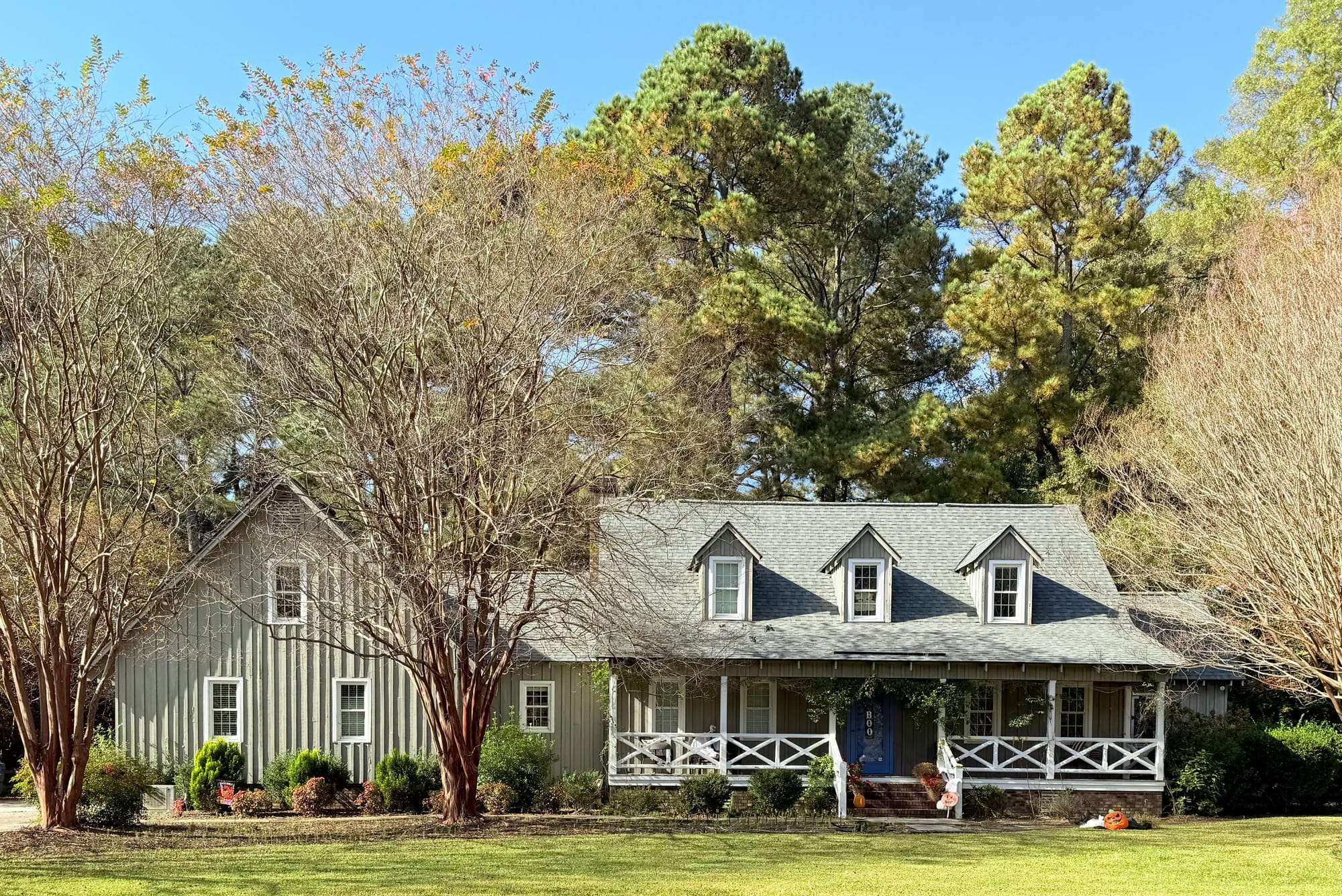For many people, buying a home is one of the most significant investments they will ever make. However, with so many different types of home properties available, it can be challenging to determine which one is right for you.
Two of the most popular types of homes are townhouses and condos. While they may look similar from the outside, there are significant differences between the two. In this article we will take a look at townhouses versus condos so you can decide which one is right for you.
Get Free QuotesWhat Is a Townhouse?
A townhouse is a type of residential property that shares a wall with one or more neighboring units. Unlike a condo, a townhouse typically has its own separate entrance and yard. Townhouses can be found in urban or suburban areas and are often designed to resemble single-family homes. They can be two or three stories tall, with bedrooms and living spaces on different floors.
What Is a Condo?
A condo, short for condominium, is a residential property that is part of a larger building or complex. Unlike a townhouse, a condo typically shares walls, floors, and ceilings with other units in the building. Condos can be found in urban areas, and they often provide convenient access to shops, restaurants, and other amenities. They are also available in suburban areas but are less commonly found there compared to townhouses.
Townhouses vs. Condos: Understanding the Differences
Homebuyers often confuse townhouses with condominiums and vice versa. However, the truth is that each is unique in several aspects, including maintenance costs, physical appearance, and privacy. Understanding these differences will allow you to make an intelligent decision about which one is right for you.
Here are some key differences between townhouses and condos.
1. Property structure.
A condo is essentially a private residence that's part of a community or building with several units. Every unit is owned by different individuals. Condos come in various styles and sizes and are generally smaller than townhouses. They share walls with the units next to them and even have shared common areas.
In contrast, townhouses are single-family homes that are built next to each other and generally include two or more stories with single or multiple walls shared with other units. Living in a townhouse is like residing in a detached single-family house. The dining room and the kitchen are typically situated on the lower floor, whereas private spaces (bedrooms) are located above.
It's important to note that condos can be situated on any level of the building, so it is essential to consider the level of a particular property you might buy, especially in tall structures. Living on the highest floor could mean climbing many stairs, but you won't have people "walking on your ceiling." Living low to the ground is more accessible, but what about blocked sunlight and breezes?
In contrast, most townhouses are ground-level, with perhaps one flight of stairs to a second floor.
“While townhouses offer more space and privacy, condos offer convenience and amenities.”
2. Ownership.
A key difference between townhouses and condos is related to ownership. Condos are a form of real estate ownership. You are basically purchasing the interior of an individual unit, whereas the HOA generally owns the building's exterior and land.
However, when it comes to a townhouse, you will actually own the land the house is built on, along with the house itself. This means you have more control over the property and the decisions that impact it. In several cases, you are going to have a front yard and a private outdoor space or a small yard in the back of the property as well.
3. Maintenance.
Since you own the land on which a townhouse is built, you need to maintain the property, including landscaping, snow removal, and other maintenance tasks.
With a condo, the HOA holds the responsibility for maintaining the building's exterior and shared spaces. This can include things like landscaping, snow removal, building repairs, and more. As a condo owner, you typically pay HOA fees every month to cover these expenses.
4. Amenities.
A notable contrast between condos and townhouses pertains to the amenities and common areas they provide. The amenities offered by each community or building may differ, but condos generally offer a wide array of communal amenities, such as swimming pools, fitness centers, and party space.
In contrast, townhouses tend to offer fewer amenities than condos, although certain newly constructed townhome communities may offer more. Many townhomes have clubhouses, playgrounds, and pools. Age-restricted active adult communities often feature townhomes with resort-style amenities, such as private gyms, tennis courts, and group fitness classes.
5. Privacy.
One significant distinguishing factor between these two home types is privacy. If you prioritize having a private yard or wish to avoid noisy neighbors, a townhouse would be better than a condo, everything else (location, price) being equal.
In general, townhouses offer more privacy since you only have neighbors on either side, as opposed to above and below. Additionally, you'll likely have a yard that is separate from the common grounds, providing an area where your kids or pets can play.
6. Cost of ownership.
When it comes to townhouse versus condo buying prices, condos are usually cheaper to purchase. This is primarily because you're not purchasing any land. However, condo HOA fees are also higher because there are more jointly owned spaces.
You need to consider other costs as well. Homeowners insurance, house inspection costs, and property taxes differ depending on the kind of property you are buying and where it's located. Make sure to consider these when evaluating whether a particular house meets your budget.
7. Resale value.
There is no guaranteed investment—the resale value of any property, whether a condo, townhome, or single-family detached, is influenced by a multitude of market factors that are beyond your control. Nonetheless, when it boils down to what you can control, both townhouse and condo properties offer some advantages as investments.
A well-managed homeowners association (HOA) ensures that the common areas and landscaping are always presentable. This means that you have less to stress about when it comes to creating a good first impression for your building or community. Although you are still responsible for ensuring that your home is ready to be sold, a stunning pool area or an attractive lawn maintained by the HOA may entice buyers and persuade them to buy your place instead of a standalone home.
In terms of appreciation rates, condos have generally exhibited slower growth in value compared to other properties, but this trend is changing. In recent years, they even exceeded single-family homes in their appreciation rate.
“Townhouses justify their higher insurance rates because you have to cover both the exterior and interior.”
8. HOA fees.
Generally, townhouses have lower HOA fees since they tend to demand less maintenance and provide fewer amenities. Nevertheless, this does not guarantee that the maintenance cost of a townhouse will always be lower than a similar condo. In the absence of HOA fees covering landscaping or exterior upkeep, the homeowner is responsible for those expenses when necessary.
9. Rules and regulations.
The regulations for condominiums are usually more stringent than those for townhomes due to the greater influence of HOAs. The extent to which having more rules is beneficial depends on the homeowner's preferences. While some people appreciate having more flexibility to express themselves through landscaping and property modifications, others prefer a more uniform appearance. Such regulations can facilitate efficient maintenance and parking space assignments. However, they can also limit the homeowners' freedom to personalize their property.
10. Homeowners insurance.
Condos typically have lower insurance rates because you only have to insure the interior. Townhouses justify their higher insurance rates because you have to cover both the exterior and interior.
Townhouse vs. Condo: Which Is Right for You?
Deciding between a townhouse and a condo ultimately comes down to your individual needs and preferences. If you value privacy, space, and control over your property, a townhouse may be the right choice for you. However, a condo may be the better option if you prioritize convenience, amenities, and less maintenance.
It's also essential to consider your budget and long-term goals when deciding between a townhouse and a condo. Townhouses may be more expensive upfront, but they may offer a better long-term investment. Condos may be more affordable and convenient, but their value might not appreciate as quickly as a townhouse.
Ultimately, the decision between a townhouse and a condo comes down to your lifestyle and priorities. Consider the pros and cons of each, and talk to a real estate agent or a financial advisor to help you make an informed decision.
Final Thoughts on Townhouses vs. Condos
Townhouses and condos offer two different styles of homeownership, each with its own advantages and disadvantages. While townhouses offer more space and privacy, condos offer convenience and amenities.
When deciding between the two, it's essential to consider your individual needs, budget, and long-term goals. Keep in mind that both can be a good investment and provide a comfortable and enjoyable living experience.
Get Free Quotes






